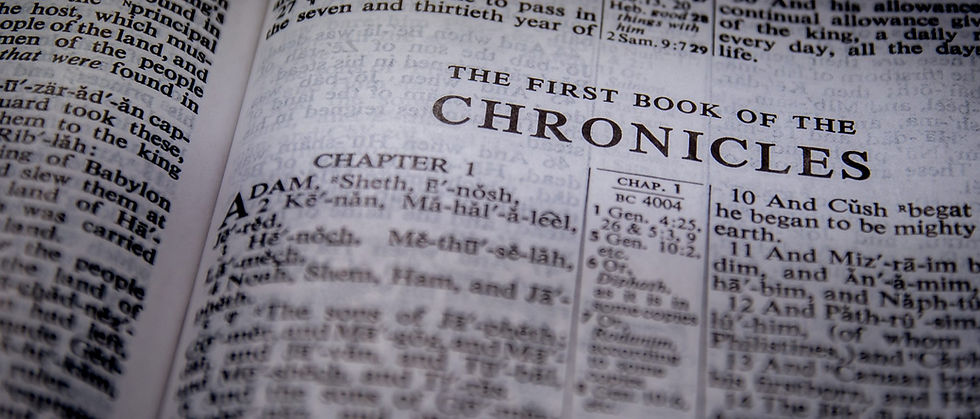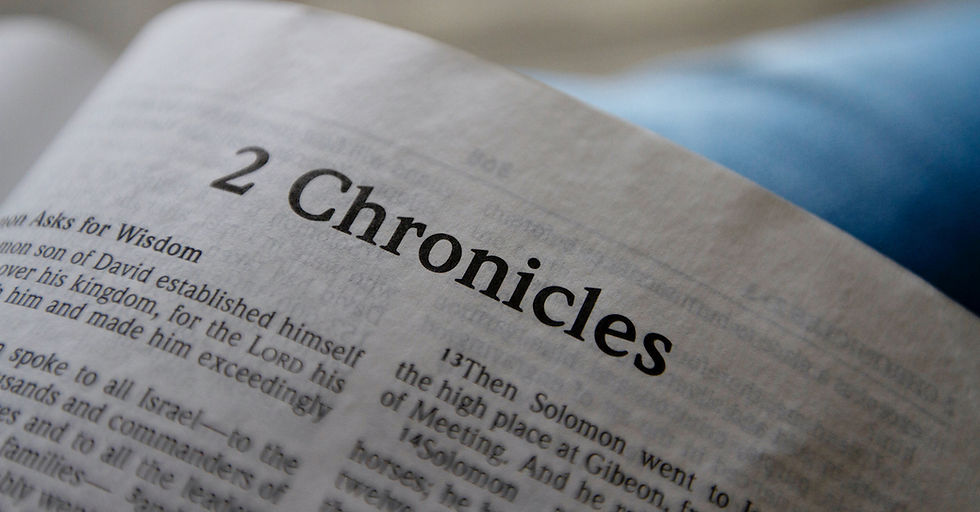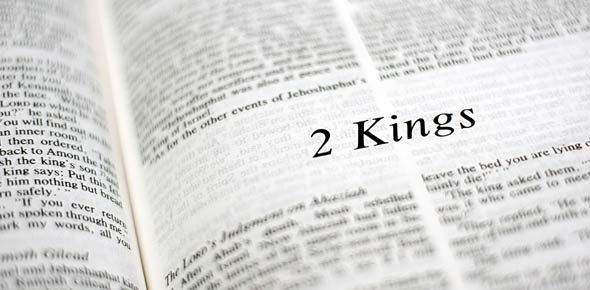1 Chronicles Summary: Genealogies, Glory, and the Coming King
- Bible Believing Christian

- Aug 8, 2025
- 4 min read

1 Chronicles Summary: Genealogies, Glory, and the Coming King
At first glance, 1 Chronicles looks like a genealogy overload—chapter after chapter of names. But don’t be fooled: this book is a powerful retelling of Israel’s story with a new focus, written after the Babylonian exile. While 1 & 2 Samuel and 1 & 2 Kings told what happened, Chronicles tells what mattered—with hope for a future restoration.
This book centers on David, not Saul. It highlights worship over warfare, and emphasizes the temple over territory. For a people rebuilding their identity, it reminds them—and us—that the story isn’t over. Written after the exile, likely by Ezra, 1 Chronicles retells Israel’s history from Adam to David, with emphasis on the Davidic covenant, the temple, and God’s faithfulness.
Etymology & Background
Hebrew Title: דִּבְרֵי הַיָּמִים א (Divrei Hayamim Alef) — “The Words (Events) of the Days – First”
Greek (LXX): Παραλειπομένων Αʹ (Paraleipomenōn Aʹ) — “Things Left Out” (i.e., omitted from Kings)
Chapter Movements & Key Moments
Chapters 1–9: The Genealogies (Yes, All Those Names Matter)
Nine chapters of genealogies may tempt you to skip—but they’re loaded with meaning:
They trace the line from Adam to Abraham, to Judah, and finally to David.
They validate the priesthood, organize the tribes, and show continuity despite exile.
These names were hope to returning exiles: “You still belong. You’re not forgotten.”
Greek Insight: The LXX preserves the Davidic genealogical line with clarity, which is important since this directly informs Matthew 1’s genealogy of Jesus.
Chapters 10: Saul Falls
Saul’s death is recounted in one chapter, without any of the earlier detail found in 1 Samuel.
The Chronicler is laser-focused on David, not Saul.
“So Saul died because he was unfaithful to the Lord.” (1 Chronicles 10:13, NLT)
Chapters 11–12: David’s Rise and Mighty Men
David is made king. The text skips his years of struggle and exile.
The focus is on unity, strength, and divine appointment.
“And the Lord said, ‘This is the man after my own heart. He will shepherd my people.’” (paraphrased summary of 1 Chronicles 11)
Chapters 13–16: The Ark Comes Home
David brings the Ark of the Covenant to Jerusalem.
Uzzah dies for touching the Ark. The people learn holy reverence.
David celebrates with worship, music, and dancing.
“David danced before the Lord with all his might.” (1 Chronicles 15:29, NLT)
Chapter 17: The Davidic Covenant
This is the theological high point of the book. God promises David a descendant whose kingdom will last forever.
“I will raise up one of your descendants… and I will secure his throne forever.” (1 Chronicles 17:11–12, NLT)
Chapters 18–21: Battles and Mistakes
David wins victories over Israel’s enemies.
He takes a census (a sinful act of pride), but repents.
God shows mercy and halts the plague through sacrifice.
Chapters 22–29: Preparation for the Temple
David is not allowed to build the temple—but he does everything else:
He gathers materials.
Organizes priests, musicians, and Levites.
Hands the plan to Solomon.
And gives one final charge:
“Be strong and courageous, and do the work. Don’t be afraid or discouraged, for the Lord God… is with you.” (1 Chronicles 28:20, NLT)
David then dies, but the final words point forward to Solomon's reign—and ultimately, to Christ's.
Conclusion & Bridge to Jesus
1 Chronicles doesn’t just recap David’s reign—it reshapes it for a post-exile audience longing for restoration.
David is presented not just as a warrior, but as a worshiper, a temple preparer, and a covenant receiver.
The book ends with the throne still intact, the temple plan laid out, and hope for a coming King.
This is the backstory of Jesus, not just Israel. The Chronicles trace the Davidic line, preserve the temple hope, and point directly to the Son of David who will sit on the throne forever.
How 1 Chronicles Points to Jesus (with New Testament Fulfillments)
1. The Davidic Covenant → Jesus, Son of David
The promise of a throne that lasts forever finds its fulfillment in Christ.
“He will reign over Israel forever; His Kingdom will never end!” (Luke 1:33, NLT)
2. The Temple Preparation → Jesus, the Greater Temple
David couldn’t build it—but Jesus came as the true dwelling of God among us.
“Destroy this temple, and in three days I will raise it up.” (John 2:19, NLT)
3. The Genealogy → Jesus’ Legal Lineage
1 Chronicles preserves the messianic line, which Matthew uses to open his Gospel.
“This is a record of the ancestors of Jesus the Messiah, a descendant of David and of Abraham.” (Matthew 1:1, NLT)
4. The Role of the Priesthood and Worship → Jesus, Our Great High Priest
David organizes priests, Levites, and singers—a foreshadowing of the heavenly worship led by Christ.
“There he ministers in the heavenly Tabernacle… the true place of worship.” (Hebrews 8:2, NLT)
Application – What Should We Do With This?
1. Don’t Skip the Genealogies
They’re not filler. They’re God’s record of faithfulness to individuals, families, and promises.
2. Prioritize Worship
David’s legacy wasn’t his crown—it was his heart for worship. Prioritize what God values.
3. Live for the Future
David planned a temple he’d never see. What are you building that outlives you?
4. Let the Covenant Shape Your Confidence
Jesus is the fulfillment of God’s promise to David. He’s the forever King. That means our hope doesn’t rest in politics, buildings, or popularity—but in the One who already reigns.


